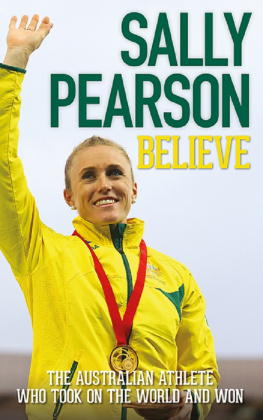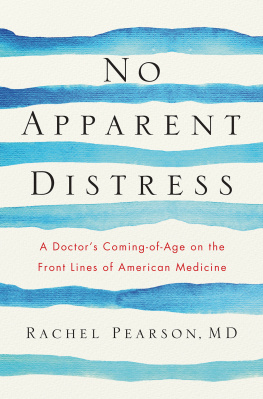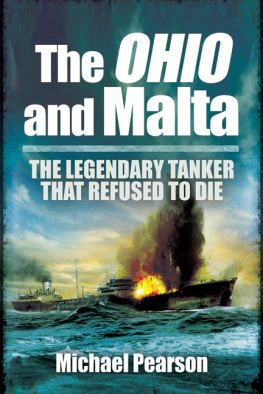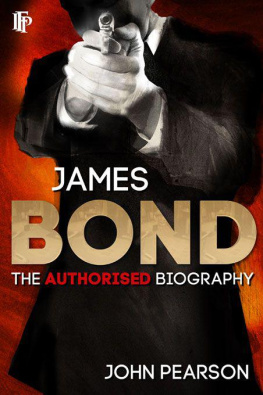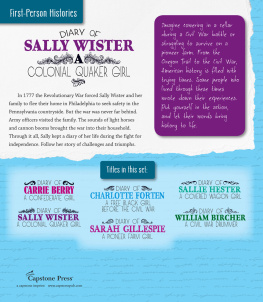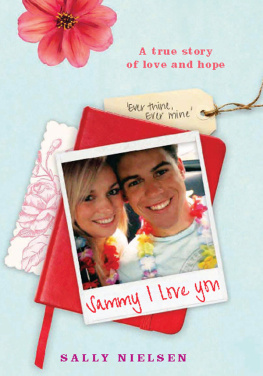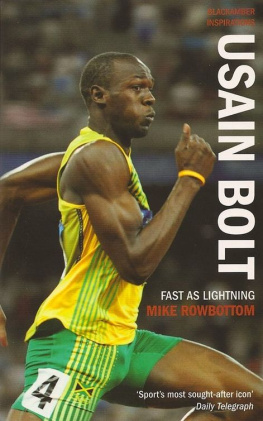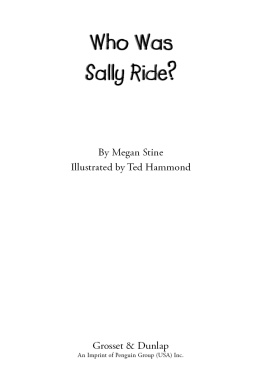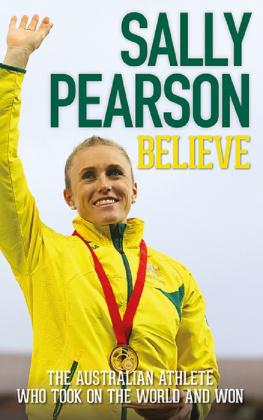

To you, the reader.
Believing in yourself is only the beginning.
Enjoy the ride and never give up.
Contents
Introduction
Chapter 20
Over the past seven decades, this nation has given rise to some of the most marvellous track and field athletes to compete on the international stage: Golden Girls Betty Cuthbert and Shirley Strickland de la Hunty, Herb Elliott, John Landy, Ron Clarke, Robert Deeks de Castella, Steve Mona Moneghetti and so many others. More recently, we rejoiced in the triumph of Cathy Freeman who, as she carried a nation around the Sydney Olympic track to a timeless victory in that race, seemed to us all to be there and yet somehow not. How did she do it; how did she feel? We never really knew, because it is possible that even Cathy herself was not sure.
And then there is Sally Pearson, truly a national athletic treasure, surely the Australian athlete we would all hope to be like: flesh and blood, but possessed of an iron will and diamond focus a winner if ever there was one. If Cathy somehow found the speed and strength to win, then there is no doubt about how Sally came to be the best hurdler in the world: she works and works and works; she never stops and never gives up and refuses to accept that any competitor will beat her on the day. No doubt dilettante sports scientists would tell you that she is either too short (or too tall) and perhaps that ideally from hip to knee to foot she should be several centimeters longer. But this matters not to her, certainly not to us and most definitely not to her opponents, who see only her steely gaze at race time and her blinding speed as she pulls away from them.
It is absorbing to read an account at the end of an elite athletes career, but so much more gripping to read about them when the competitive fire burns brighter than ever and they are at the pinnacle of their event. How did they get there and how do they keep on doing it?
Believe is not only a story about racing, but also about life and relationships: Sallys redoubtable Mum, her marvellous coach Sharon and Sallys rock, her husband Kieran.
Were a sporting nation; we cant help ourselves, we love winners. Believe is a story about winning by never giving in, about a ceaseless quest by one of our champions, about our Sally. Its a great and ongoing story.
General Peter Cosgrove, ac, mc (Retired)
Im winning the Olympics.
I was over the sixth hurdle and my mind was already focused ahead to number eight because in both the heat and the semifinal Id hit it.
That was a mistake. Instead of attacking it hard, I reached for it and went too high, clearing it by too much and slowing my momentum. I was playing safe.
Dont worry. Keep going; youre still winning.
I cleared the final hurdle, feeling that customary wave of relief: I was safe and all that was left was running over the finish. Thats the fun part. I was particularly enjoying the moment because I still couldnt sense anyone around me.
Yeeeessss Oh no, hang on.
As soon as I crossed the line I looked over at the clock and saw the time 12.35 seconds. Then I turned and she was there. Dawn Harper was right there.
Oh God no. Surely not. I cant have just lost my Olympic gold medal.
I hadnt seen her until we were probably 2 metres past the finish line. She was close too close. But I was sure I was ahead of her when it mattered, although there were still no names up on the big screen.
Why is it taking so long? I know Ive won. I know Ive won. I know Ive won. I know Ive won.
After all Id been through, over the previous two weeks in particular, all I could do was believe. I had to believe.
Then the names appeared.
Oh my God, Im the Olympic champion.
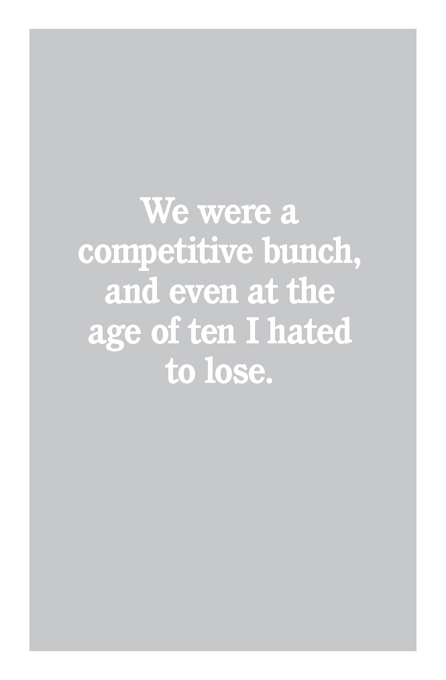
C an you please let me win?
I looked over at the girl who was politely asking the question. We were about to race each other in the school sports at my latest primary school in Sydney. I was the new kid on the block and Id been told she was the best runner in Year 3 at La Perouse Public School.
Oh yeah, sure, I said with a smile.
And I was genuine until the gun went off. Then I became a different person.
There was no way in the world I was going to let her win the race. Something had kicked in and I ran as fast as I could to the finish line. I won the race and received a very confused look from my rival. Already my hatred of losing was inbuilt.
It got me some new friends, though, as everyone kept coming up to me, saying, You can run pretty fast, cant you?
Yeah, would be my embarrassed reply.
My PE teacher apparently saw it too because he wrote in my report card: Sally has the ability to become an elite athlete one day.
I was pretty excited to read that, as that was a goal of mine, but it wasnt going to be as a runner; I was going to be a gymnast. It had been my one passion from very early in life.
My mother, Anne, loves telling the story about how at the age of one I was walking by eight and a half months she took me down to the park with some neighbouring children.
They were older than me and were playing on the monkey bars. She says I somehow managed to pull myself up onto the bars and immediately hung upside down.
Well, youre going into gymnastics, then, was her immediate thought.
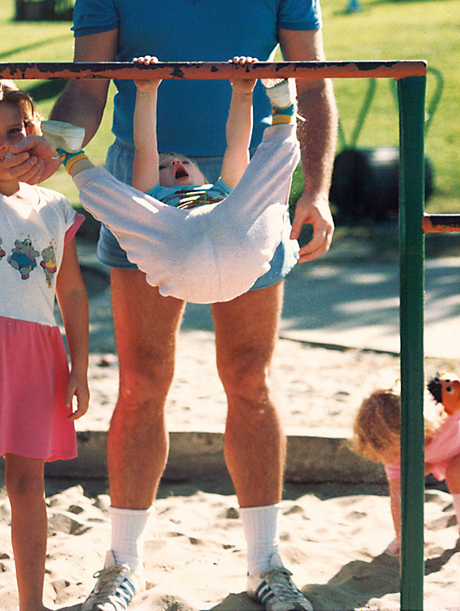
Proudly showing off my monkey bar skills at the age of one. Mum says this was the moment she decided I was going to be a gymnast.
I started when I was four years old. I would do a gymnastics class and then walk across the park and do swimming lessons. That lasted for about a year before the timetables were changed and I was forced to pick one over the other. I went with gymnastics and was quickly put into the elite squad.
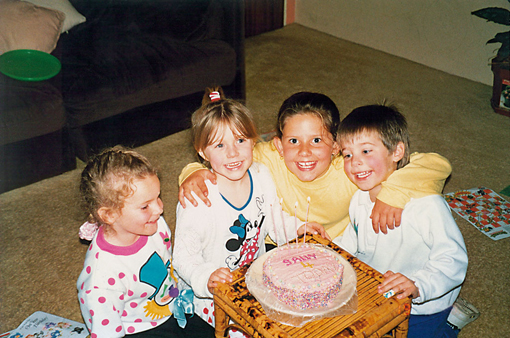
My fourth birthday party with friends from left to right: Samantha Judson, me, Amanda Judson and Scott Hulbert.
Bouncing and jumping all over the place suited my personality because, as my mother kept telling me, I was crazy. I would often stand at the top of the stairs in our home and, as soon as Mum walked past, Id leap out at her and expect her to catch me. I had so much energy, and I think thats a big reason why she steered me towards sport.
Gymnastics quickly became serious, and by the age of seven I was training up to 30 hours a week. Twice a week I would train at 6 am and Mum would drop me off, as it was on her bus route into the city, where she worked.
The gymnastics coach would then take me to school, which at that stage was Coogee Public School, but wed usually be around 1520 minutes late. I would have to go to the office and get a late slip to take to the teachers to explain why I was late. I just wrote, At gymnastics. This worked for a couple of days before the questions started.
Is this going to be happening all the time?
I only do it twice a week in the mornings, I responded.
Okay, then, was the teachers response.
A couple of weeks later a letter was sent home from the principal, saying I had to choose between gymnastics and school because they werent going to allow me to be late anymore.
Next page
